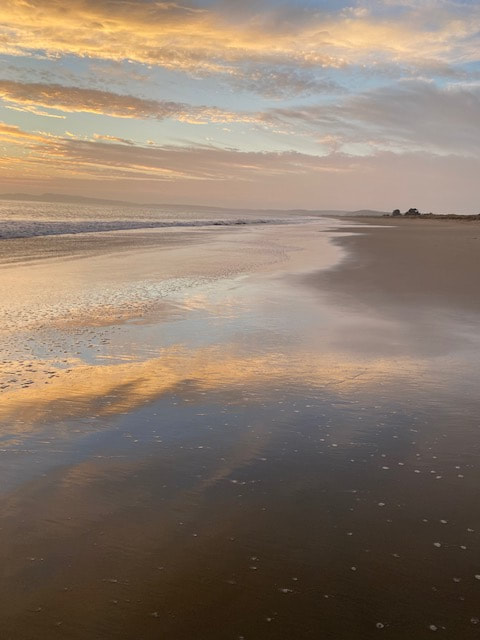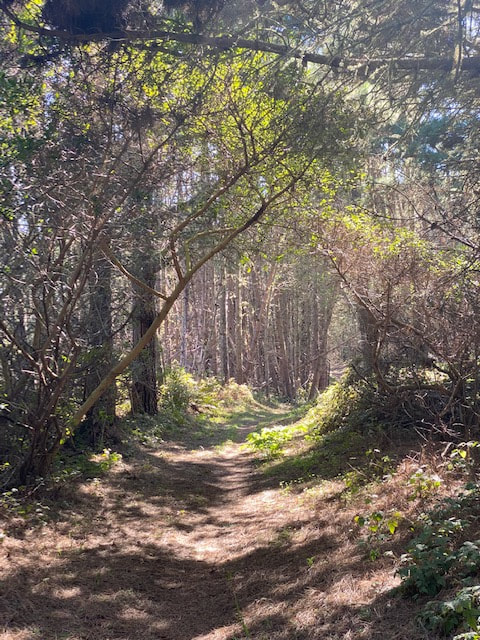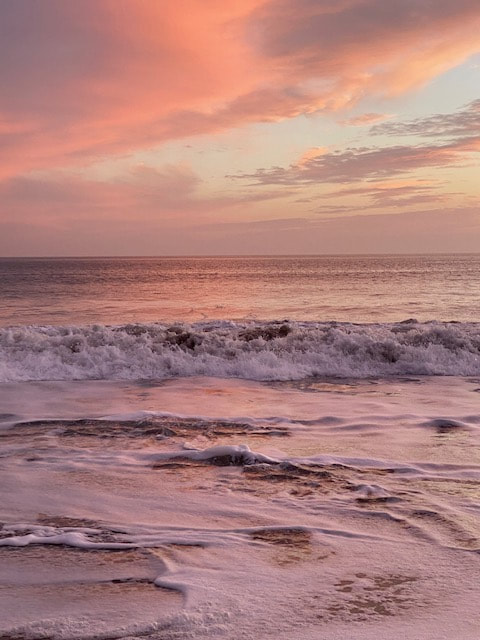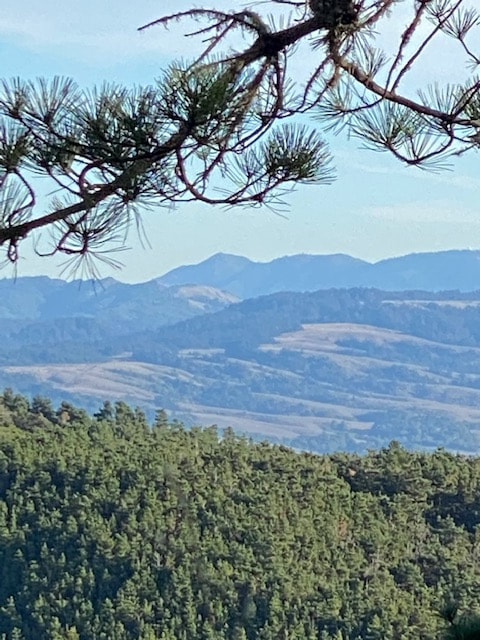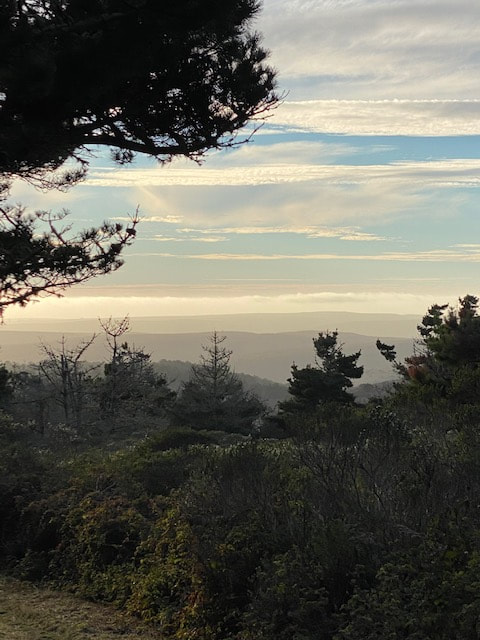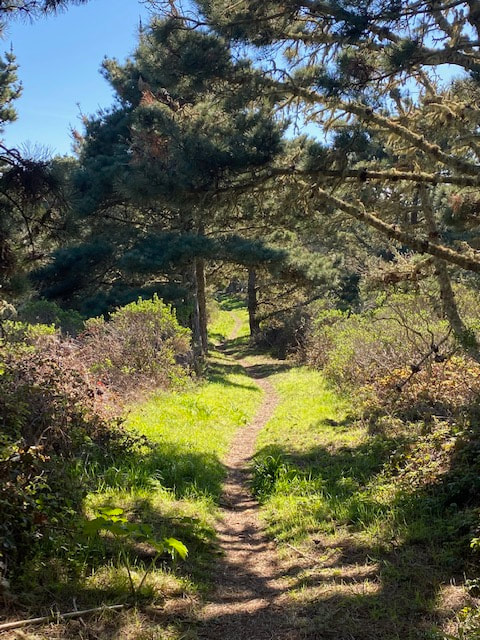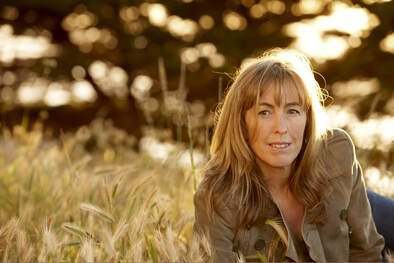- Home
- Process Worldview
- Community
- Art and Music
- Whitehead and Process Thinking
- Podcasts
- Spirituality
- Ecological Civilization
- Education
- Contact
- Social Justice
- Science
- Animals
- Sacred Poems
- Whitehead Videos
- Index of All Titles
- Practicing Process Thought
- Process Spirituality: A Spiritual Alphabet
- Recent Posts
What Music Means to Me
By Jill Suttie *
I’d played the guitar and sung for many years before I ever wrote my own songs. It wasn’t until I reached my early 40’s and my mother died of Lewy Body dementia. Her passing made me more keenly aware of the fragility of life and the banality of existence, and it prompted me to want to live my life differently. Until then, I’d worked as a counselor and therapist helping others to grow and heal. But suddenly, I felt compelled to create something concrete and lasting and to forge a new career path for myself. That’s how I eventually came to work for Greater Good as a writer and why I began writing songs and recording them.
Most of my songs have come out of some deep part of my psyche than seems to open to me when I can be quiet enough to hear it. I’ve always been a nature lover, and I would often take long hikes alone in the woods of the Point Reyes National Seashore to escape my everyday responsibilities and relax my busy mind. Snippets of melody or a lyric line would bubble up to the surface, and I would sing into a tape recorder so I could listen again later when I had my guitar in hand. Those recordings became the seeds from which my songs grew.
I don’t know what inspired my songs, exactly; but, I believe that all people have an urge to create—whether that means writing songs, making a pie, knitting a hat, or doodling. Whether or not their art finds an appreciative audience is secondary. There is something magical about diving deep into a creative act that heals the soul, bringing clarity and richness to life. Though I’ve written about the science of music for Greater Good, and know it can heal, transport us emotionally, and connect us to others, I don’t need the validation of science to know the power of music. I just feel it.
One of the first songs I ever wrote was a song called “Lucky Girl.” At the time, I was a mother of two young children, behaving much as the woman in the song does—spending my time shuttling kids to school, working some, and trying to hold it together but feeling a little lost and depressed. It seemed to me that I was wasting my mind. Though I was capable of doing more and making a difference in the world, I was hampered by my responsibility to others. I wanted to break free of my constrained existence, but didn’t know how. Luckily, unlike the woman in the song, I never took pills or danced naked on the lawn. I found a different way out.
One key step was to make friends with my “Melancholy Mind”—the subject of another song of mine. I knew my mind often turned toward the negative in life—frustrations with people who seemed absorbed by their cell phones, the inability to convince people to work for climate change, the pervasiveness of homelessness in my community—and it would deepen my sense of helplessness and hopelessness. At some point, though, I realized that I couldn’t fight my depressive thinking but had to make friends with it, to just accept it as a part of me. Letting myself experience the full range of my emotions without judgment was part of my path to becoming free.
When you stop being stuck in negative feelings, it leaves you open to more positive experiences, like gratitude, compassion, forgiveness, and happiness. These were all there inside of me; but, something held me back from experiencing them more. That sense of knowing that the answer lies within is what inspired my song, “Come and Find It”. The key is letting go of fear and opening your heart—something I still work on every day of my life.
Luckily, I get glimpses of that every now and then. One fine fall day, I was hiking on a trail when I had an “aha” moment, where I felt totally present, in awe of the world around me. I was so overwhelmed by the beauty of my surroundings I started composing a love song on the spot, which became “Fall in California.” This song is one that seemed to write itself—it came out almost wholly formed. In hindsight, I think that’s because I was so open and aligned with my muse that day. Whatever the reason, it’s a favorite song of mine, because it’s focused on love—the love of place as well as the love of being in love.
My relationship with music might not speak to anyone else’s. But, that’s OK with me. I don’t write music to convince; I write music to express. If it happens to contain a kernel of wisdom or inspiration that resonates with someone else, that’s a gift. But, truthfully, I make music because it has meaning for me and me alone. It helps me understand this crazy ride of existence. And gaining that perspective, I believe, is the primary task of life.
Most of my songs have come out of some deep part of my psyche than seems to open to me when I can be quiet enough to hear it. I’ve always been a nature lover, and I would often take long hikes alone in the woods of the Point Reyes National Seashore to escape my everyday responsibilities and relax my busy mind. Snippets of melody or a lyric line would bubble up to the surface, and I would sing into a tape recorder so I could listen again later when I had my guitar in hand. Those recordings became the seeds from which my songs grew.
I don’t know what inspired my songs, exactly; but, I believe that all people have an urge to create—whether that means writing songs, making a pie, knitting a hat, or doodling. Whether or not their art finds an appreciative audience is secondary. There is something magical about diving deep into a creative act that heals the soul, bringing clarity and richness to life. Though I’ve written about the science of music for Greater Good, and know it can heal, transport us emotionally, and connect us to others, I don’t need the validation of science to know the power of music. I just feel it.
One of the first songs I ever wrote was a song called “Lucky Girl.” At the time, I was a mother of two young children, behaving much as the woman in the song does—spending my time shuttling kids to school, working some, and trying to hold it together but feeling a little lost and depressed. It seemed to me that I was wasting my mind. Though I was capable of doing more and making a difference in the world, I was hampered by my responsibility to others. I wanted to break free of my constrained existence, but didn’t know how. Luckily, unlike the woman in the song, I never took pills or danced naked on the lawn. I found a different way out.
One key step was to make friends with my “Melancholy Mind”—the subject of another song of mine. I knew my mind often turned toward the negative in life—frustrations with people who seemed absorbed by their cell phones, the inability to convince people to work for climate change, the pervasiveness of homelessness in my community—and it would deepen my sense of helplessness and hopelessness. At some point, though, I realized that I couldn’t fight my depressive thinking but had to make friends with it, to just accept it as a part of me. Letting myself experience the full range of my emotions without judgment was part of my path to becoming free.
When you stop being stuck in negative feelings, it leaves you open to more positive experiences, like gratitude, compassion, forgiveness, and happiness. These were all there inside of me; but, something held me back from experiencing them more. That sense of knowing that the answer lies within is what inspired my song, “Come and Find It”. The key is letting go of fear and opening your heart—something I still work on every day of my life.
Luckily, I get glimpses of that every now and then. One fine fall day, I was hiking on a trail when I had an “aha” moment, where I felt totally present, in awe of the world around me. I was so overwhelmed by the beauty of my surroundings I started composing a love song on the spot, which became “Fall in California.” This song is one that seemed to write itself—it came out almost wholly formed. In hindsight, I think that’s because I was so open and aligned with my muse that day. Whatever the reason, it’s a favorite song of mine, because it’s focused on love—the love of place as well as the love of being in love.
My relationship with music might not speak to anyone else’s. But, that’s OK with me. I don’t write music to convince; I write music to express. If it happens to contain a kernel of wisdom or inspiration that resonates with someone else, that’s a gift. But, truthfully, I make music because it has meaning for me and me alone. It helps me understand this crazy ride of existence. And gaining that perspective, I believe, is the primary task of life.
* Jill Suttie, Psy.D., is Greater Good’s former book review editor and now serves as a staff writer and contributing editor for the magazine. She received her doctorate of psychology from the University of San Francisco in 1998 and was a psychologist in private practice before coming to Greater Good. Her passion for science, positive psychology, and social psychology fueled her interest in writing for the magazine, and she published her first article there in 2006—two years after Greater Good’s inception. Since then, she’s written hundreds of articles and book reviews covering a multitude of topics, including compassion, mindfulness, resilience, awe, altruism, happiness, cooperation, and purpose. She also writes about the impacts of racial bias, technology, nature, music, and social policy on individual mental health, relationships, and society. Outside of working for Greater Good, she does freelance writing for other publications, has been a featured guest on podcasts, and is a musician with two CDs of original songs, both available on her personal website: jillsuttie.com. Jill has two grown children and lives with her husband and her dog in Berkeley, California, where she hikes regularly in nearby Tilden Park to get her recommended daily dose of nature.
